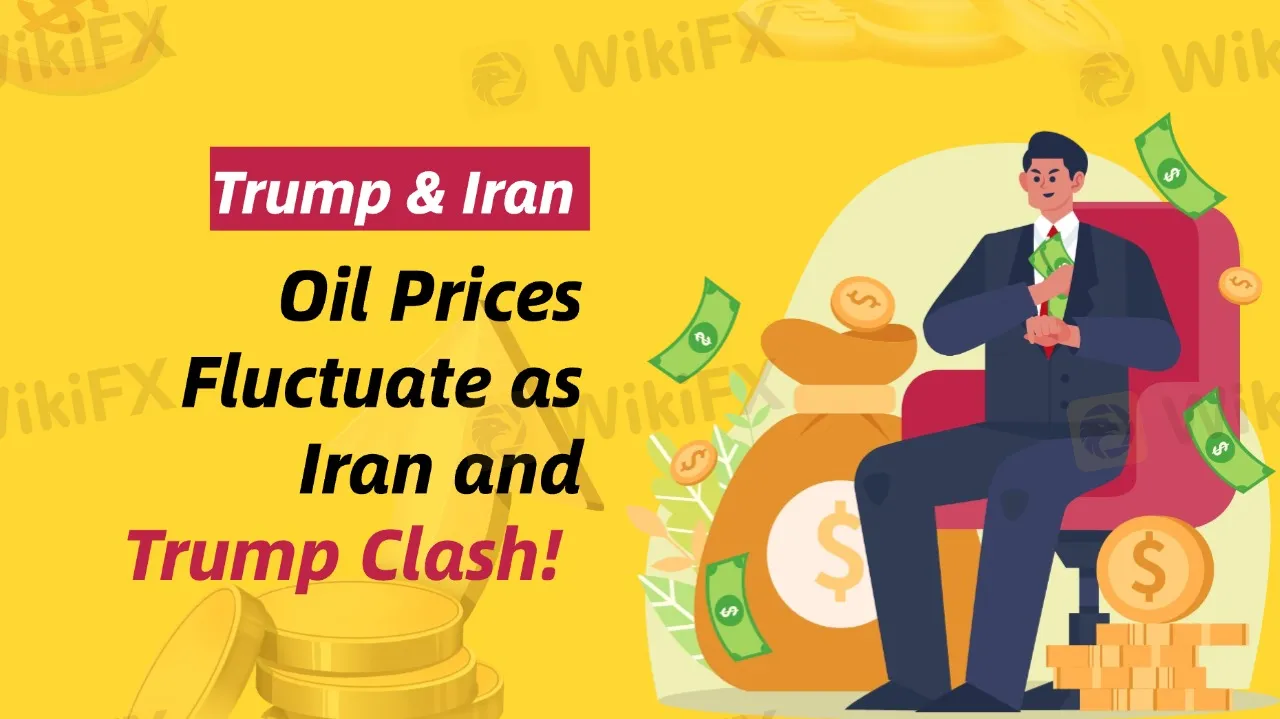Oil Prices Fluctuate as Iran and Trump Clash!
Abstract:As Trump once again implements the "maximum pressure" policy on Iran, oil prices have become increasingly volatile, and the atmosphere in the international markets has grown more tense.

The Iranian government has consistently stated that it is willing to negotiate with the U.S., but under the condition that such talks are not conducted within the framework of the “maximum pressure” policy. Iranian Foreign Minister Abbas Araghchi clearly stated that any negotiations for lifting sanctions must be based on equality and respect, not under the threat of “maximum pressure,” as this cannot be considered negotiation, but rather surrendering to Iran.
Additionally, Iran‘s Supreme Leader Ayatollah Ali Khamenei has explicitly pointed out that he does not support negotiations with the U.S., calling Trump’s diplomatic policy reckless.
Trump's Pressure on Iran
The Trump administration not only withdrew from the Iran nuclear deal but also reinstated severe sanctions on Iran, even targeting the countrys oil exports. After the U.S. withdrew from the agreement in 2018, Trump attempted to force Iran to make concessions on nuclear issues through economic pressure. Recently, the U.S. intensified its sanctions on Iran, announcing sanctions on individuals and companies involved in transporting Iranian oil to China.
Trump has clearly stated that Iran cannot possess nuclear weapons and has called for a “verified nuclear peace agreement,” while Iran insists that its nuclear program is for peaceful purposes and denies any intention to develop nuclear weapons. As sanctions continue to escalate, the tension between the two sides is also increasing.
In response to Trump‘s “maximum pressure,” Iran has taken a hard stance, stating that it will never negotiate under the increasing sanctions. Iranian Oil Minister Bijan Zanganeh stated directly that Trump's maximum pressure policy, particularly the aim to reduce Iran's oil exports to zero, has failed. As restrictions on Iranian oil exports become more severe, Iran's countermeasures become more complex, showing that the U.S. cannot easily achieve its goal of bringing Iran’s oil exports to zero.
The ongoing battle between Iran and Trump has created a volatile situation for oil prices. For global investors, closely monitoring the diplomatic and economic policy developments between the two countries will help in navigating the opportunities and risks posed by oil price fluctuations.
Read more

The One Fear That’s Costing You More Than Just Profits
The fear of missing out (FOMO) is NOT what you think it is! Read the three lesser-discussed components that contribute greatly to FOMO trading!

Bitpanda Secures Full Broker-Dealer License in Dubai
Bitpanda has officially obtained a full broker-dealer license from the Dubai Virtual Assets Regulatory Authority (VARA), marking a significant milestone in its international expansion. This approval, which follows preliminary authorization granted three months earlier, enables the European digital asset exchange to introduce its comprehensive suite of virtual asset services to investors in the United Arab Emirates (UAE).

RM457,000 Forex Fraud: Court Grants Conditional Release, Is Justice Delayed?
A Malaysian magistrate’s court has issued a discharge not amounting to acquittal (DNAA) for two former directors of an investment company implicated in a forex investment fraud case involving RM457,735.50.

Gold Surges to New Highs – Is It Time to Buy?
Recently, gold prices have once again set new records, surpassing $3,077 per ounce and continuing a four-week winning streak. Is It the Right Time to Invest?
WikiFX Broker
Latest News
Why Are Financial Firms Adopting Stablecoins to Enhance Services and Stability?
Experienced Forex Traders Usually Do This Before Making a Lot of Money
Octa vs XM:Face-Off: A Detailed Comparison
When High Returns Go Wrong: How a Finance Manager Lost RM364,000
Bridging Trust, Exploring Best—WikiEXPO Hong Kong 2025 Wraps Up Spectacularly
Interactive Brokers Expands Crypto Trading with Solana, XRP, Cardano, and Dogecoin
Fidelity Investments Explores Stablecoin Innovation in Digital Assets Sector
Why More People Are Trading Online Today?
SEC Ends Crypto.com Probe, No Action Taken by Regulator
Broker Comparison: FXTM vs XM
Rate Calc

